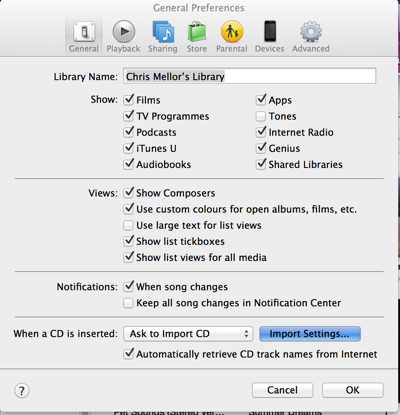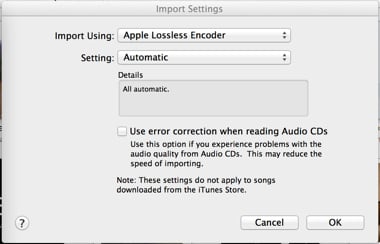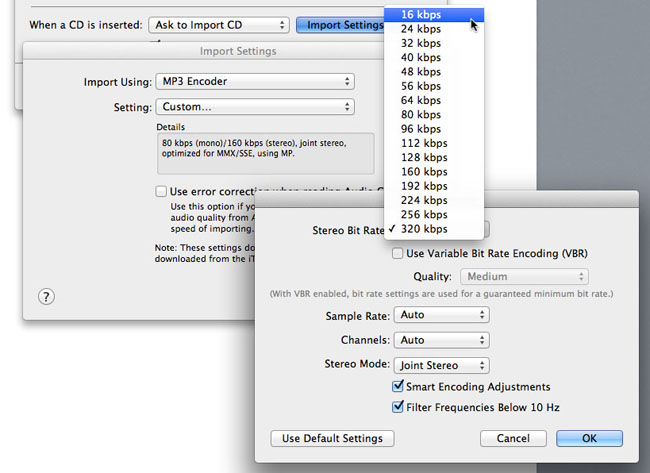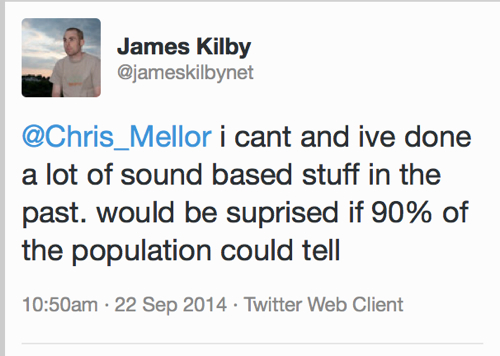This article is more than 1 year old
How the FLAC do I tell MP3s from lossless audio?
Can you hear the difference? Can anyone?
Getting FLACs into iTunes on the Mac
This is not an easy process.
You can buy a FLAC download of the Essential John Tavener CD from Presto Classical

FLAC download option for Essential Tavener CD on Presto Classical
When you download the album on an Apple MacBook it comes as a ZIP file. Double-click this to unzip it and you get a .cpgz file – a compressed Unix CPIO archive file. Double-click that and you get a fresh copy of the ZIP file. Double-click that and it's another .cpgz file as you disappear into recursive frustration. Google search revealed that the Mac terminal program could be used to open the ZIP file and extract the component FLAC files.

iTunes Preferences pane with Import Settings highlighted
Then a freely downloadable program like XLD can be used to do the FLAC-to-ALAC conversion, called transcoding. It installs as an icon on the dock and you convert, FLAC file by FLAC file, to an output folder which fills up with ALAC format .m4a files. These get imported into iTunes with iTunes Preferences : General : Import Settings set to Apple Lossless Encoder.

Import set to ALAC, Apple Lossless encoding.
Now re-index the Sonos Controller music library on the MacBook and you can play the lossless version of the music and compare it to the lossy MP3 version. Here's the killer; I found no perceptible difference.
Can human ears discern FLAC and MP3 differences?
Alan Campbell, speaking as a brain between a pair of ears rather than as UK sales director for Nutanix, reckons he can. He told me, via email: "Assuming the same source material (e.g. CD ripped to MP3 and FLAC – that is, comparing lossy to lossless compression) and played on the same system in a domestic 'listening' setting, then Yes. To me, this is true for MP3, ALAC or any other compressed format I have tried (e.g. Vorbis) compared to lossless (FLAC) with some minor differences."
"For example,” he continues, “consider how 'real' the cymbals sound - we all know what a cymbal in real life sounds like and the accuracy of this reproduction, to my ears, is affected by the level of compression. Lossy compression makes this sound 'tizz' in an unnatural way when compared to lossless/uncompressed."
A second listener said the lossless version of a music track sounded purer, less blurry. However it was a very slight difference.
El Reg's reviews editor Bob Dormon thinks yes, we can. A former sound engineer, he said: "As John Watkinson stated in his piece about loudspeakers, we are told MP3 is good enough because the equipment we play it back on is too shitty to highlight its shortcomings."

iTunes MP3 custom settings: choosing low bit rate encoding exaggerates the issues with MP3 which can help indicate what to listen out for in higher bit rate files – click for an uncropped image
"[With MP3 encoding] among the things to go are reverberation, so the spatial quality becomes curtailed, probably more noticeable on jazz and classical than pop music. Lower bit rates muddy things considerably. I would suggest you do some tests of your own on a piece of music with some variable dynamics and try different encoding."
It's said by some cynics that lossless music is a way to get people who can't hear the difference to buy their digital music collection all over again. They don't necessarily mean that the FLAC-MP3 difference can't be heard but that you need far higher-quality gear than Chinese mass manufacture ear beads to hear it. The trouble here, Watson (as the sound Sherlock says), is that there's no clear definition of what higher quality audio gear you do need.

FLAC or MP3? Here's a "there is no difference really tweet."
